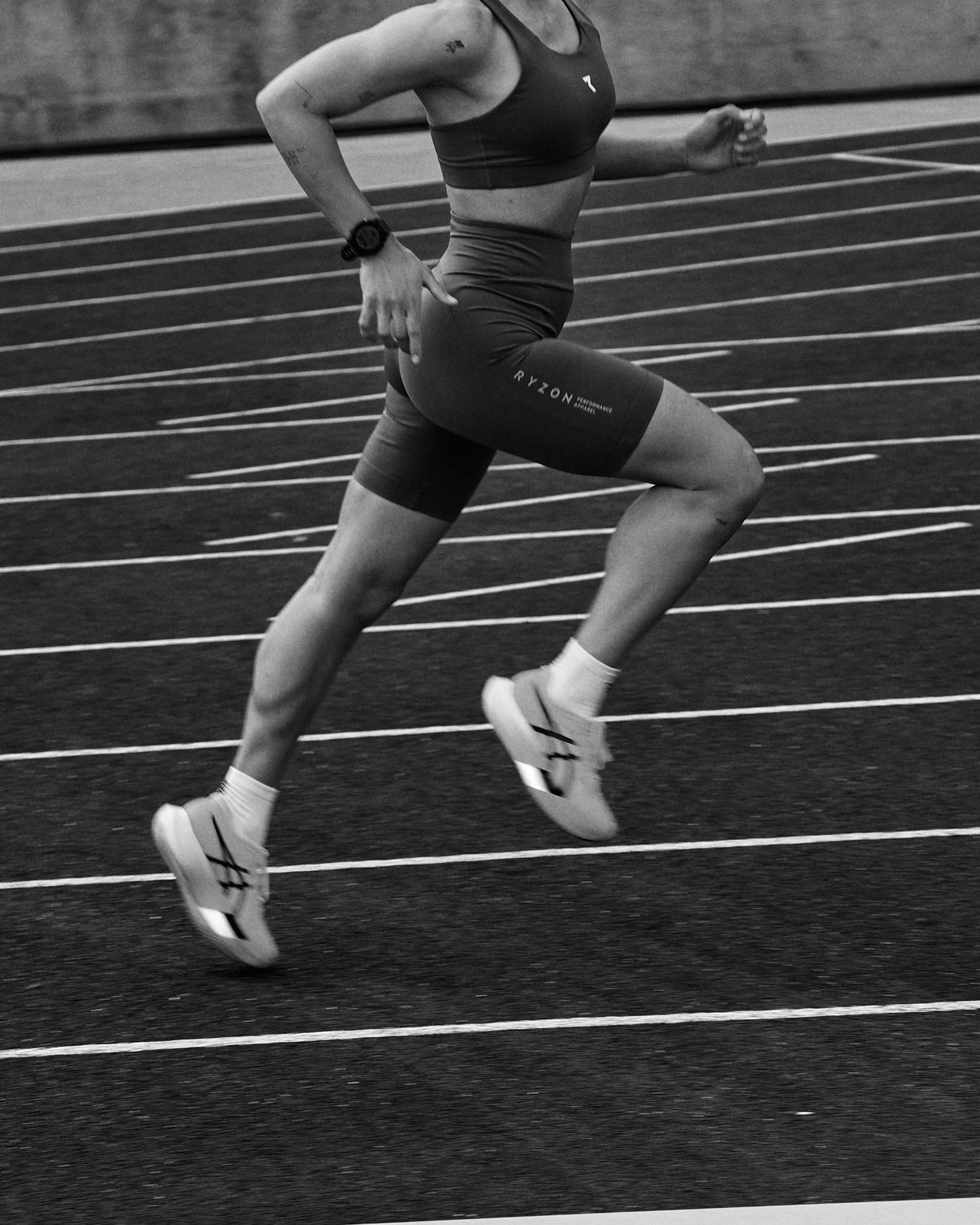Half Marathon/ Marathon Guide // Lesson 7 - Race Day
Are you planning your first half marathon or even marathon? Learn everything you need to know about half marathons and marathons in our comprehensive guide. Lesson 7 is all about "Race Day."
Lesson 6: Starting in Winter
The big day has arrived! Your race is just around the corner! Race day is the culmination of your months of preparation. Careful planning is crucial to giving your best. This lesson will help you find answers to the most important questions about race day:
- What should I eat and drink in the days before the race?
- What does optimal preparation look like during race week?
- What clothing and equipment are suitable for race day?
- What mental strategies help you stay focused and calm?

The week before the race - Your Race Week Guide
The last seven days before the competition are crucial for your performance. Your goal should be to start refreshed, rested, and full of energy.
Training during Race Week
- Reduce your training volume to keep your muscles fresh. Avoid hard workouts.
- Stay active , but only run shorter, easier distances.
- Do a short tempo session (e.g. 2-3 km at race pace) three to four days beforehand to keep your muscles alert.
- Take a rest day: One or two days before the race, you should either take a break or just do a short shake-out run (approx. 20 minutes).
- Here you can find more tips on the topic of tapering.
Nutrition in the last few days
- Carboloading: Increase your carbohydrate intake (rice, pasta, potatoes, bread) three days before the race to fill your glycogen stores.
- Avoid heavy, fatty and high-fiber foods as they put a strain on digestion.
- Drink enough water to stay hydrated before the start.
Mental preparation
- Visualize race day: Imagine the process and your successful finish.
- Set realistic goals: Consider your desired pace and alternative goals for different scenarios.
- Develop a race strategy: When do you want to push? When do you need to control your pace?
- Avoid stress: Plan your travel, starting documents and equipment in good time.
Race Day - Your perfect schedule
Morning routine & warm-up
Race day begins with proper preparation in the morning:
- Get up at least 3-4 hours before the start.
- Have breakfast 2-3 hours before: A light meal with carbohydrates, low fat and protein (e.g. toast with honey, oatmeal with banana).
- Drink enough , but don't overdo it – avoid constantly having to go to the toilet during the run.
- Do a light warm-up , which should be completed 15–20 minutes before the start: easy warm-up, mobilization and short increases.
The right clothing for the competition
Your outfit should be optimally adapted to the weather conditions:
- Running shoes : Run in well-worn shoes that you've tested during training. Depending on the distance and your pace, carbon fiber shoes may also be useful. However, you should definitely try them out first!
- Functional clothing : Light, breathable, not too warm – dress as if it were 10°C warmer.
- Accessories: Depending on the weather, headband, gloves or sunglasses.
- Chafing protection: Apply Vaseline or anti-chafing cream to sensitive areas.
The start
- Position yourself in the starting block according to your target time.
- Don't start too fast! The adrenaline will tempt you – hold back for the first few kilometers.
- Find your rhythm: Run at your planned pace and pay attention to your breathing.
Nutrition during the run
Depending on the race distance, you should ensure a constant energy supply during the run.
Half Marathon Nutrition
- Fluids: Take small sips of water or electrolyte drinks at each aid station.
- Gels or carbohydrates: If necessary, take a gel or a small amount of carbohydrates after about 45 minutes.
Marathon nutrition
- Drink regularly, but not too much at once.
- Consume carbohydrates after 30–45 minutes and replenish them every 30–40 minutes (e.g. gels, bars or energy chews).
- Don't experiment with new products on race day! Be sure to test your strategy in training beforehand.
Mental strategy during the race
Longer races require not only physical but also mental strength.
- Stay focused: Divide the race into sections (e.g., “easy until kilometer 10, then steady until 30, then push”).
- Use positive self-talk: Remind yourself of your training and that you are prepared.
- Enjoy the moment! Cheer on other runners and soak up the atmosphere.
After the race – recovery & regeneration
Directly after the destination
- Continue walking slowly to avoid circulatory problems.
- Drink some water or electrolytes immediately.
- Do some light stretching or a short mobilization.
Nutrition after the run
- First meal within 30–60 minutes: Carbohydrates and proteins for recovery (e.g. bananas, smoothie, yogurt, bread with spread).
- Protein-rich diet in the following days to regenerate the muscles.
Regeneration days
- Exercise: A leisurely walk or light cycling promotes blood circulation.
- Sleep: Give yourself enough rest.
- Massages or Blackroll: Supports muscle regeneration.
Race Day Checklist
- Breakfast prepared & tested
- Prepare competition clothing and suitable running shoes
- Nutrition planning
- Start number/time chip ready
- Mental strategy/ race plan considered
- Goals set
- Enjoy the race!
Conclusion
A competition is the culmination of many months of hard work. With good preparation, proper nutrition, and mental strength, you can give your best and enjoy the day. Be proud of yourself – no matter the result. It's the journey that counts!


